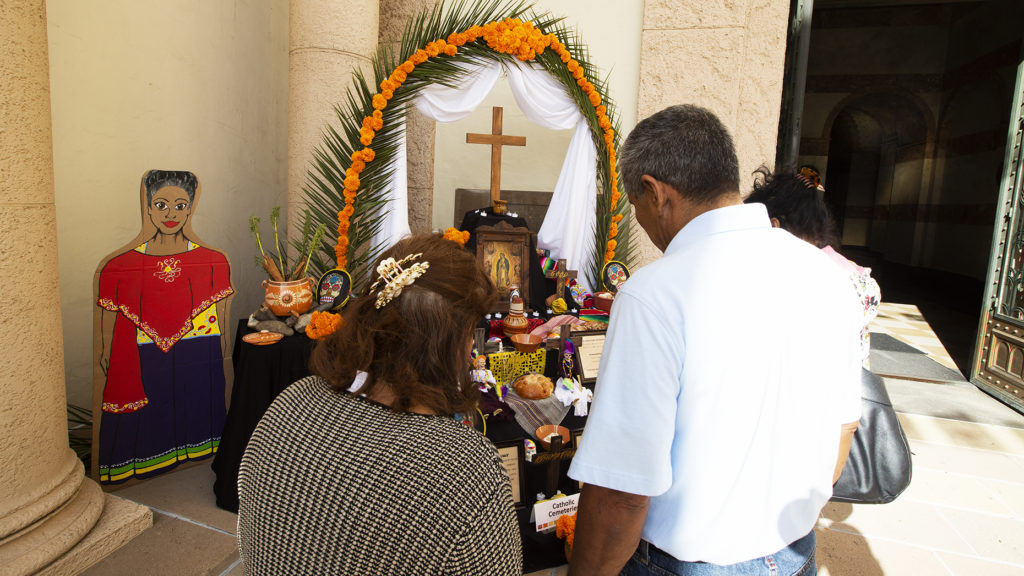In his Oct. 4 apostolic exhortation “Dilexi Te” (“I Have Loved You”), Pope Leo XIV turned the Church’s attention to the poor of this world.
Now, in November, the Church’s calendar directs us to the “poor” in the next.
November begins with two feasts dedicated to faithful people whose earthly lives have ended.
All Saints’ Day, on Nov. 1, celebrates those already in heaven. All Souls’ Day, on Nov. 2, reminds us to pray for those still undergoing refinement in purgatory. Its official title is “The Commemoration of All the Faithful Departed.”
This year we can approach the month of November in the spirit of Leo’s letter. In Catholic tradition, the souls in purgatory are called “poor souls” because they are helpless in their current state and depend on the living to assist them.
The souls in purgatory are destined for heaven, but must first be purified of the effects of their sins, because “nothing unclean will ever enter” God’s presence (Revelation 21:27). Their waiting is suffering because they are separated from God, who is their desire and their goal.
Those in purgatory can no longer earn merit or do anything to lessen their own suffering or hasten their entry into heaven. Their time for earning spiritual rewards ended at death. So they are dependent on us, the living. Their purification and release from purgatory can be aided only by the prayers and good works of the faithful on earth.
And the Church has arranged November for that purpose.
In November, Catholics can gain several special “plenary indulgences.” These are graces from the Church, granted through the merits of Jesus and the saints, and they can be applied to oneself or to the souls of the deceased in purgatory. A plenary indulgence grants a full remission of all temporal punishment due to sin.
Catholics can obtain these in several ways during the opening days of November.
The Church grants a plenary indulgence just for visiting a cemetery during Nov. 1-8 and praying for the dead. All we need to do is show up and pray. An appropriate text for that purpose is the prayer known as the “Requiem” (which is its opening word in Latin).
Eternal rest grant unto them, O Lord,
and let perpetual light shine upon them.
May the souls of all the faithful departed,
through the mercy of God, rest in peace.
Another plenary indulgence is available on Nov. 2 (or the following Sunday) by visiting a church and reciting an Our Father and the Apostle’s Creed.
A plenary indulgence is a tremendous grace, and it’s a powerful way to bring closure to the unfinished business that’s left in any relationship at death.
Still, a plenary indulgence isn’t a magic formula. It’s about our own conversion as much as fulfillment for our beloved dead. So we must fulfill certain preconditions if we’re to gain the grace. To receive a plenary indulgence, individuals must be completely detached from sin, must make a sacramental confession and holy Communion within 10 days before or after the indulgenced act, and pray for the pope’s intentions.
We can, of course, do more during November if we wish. We can decorate the graves of our loved ones. We can have Masses said for them. If our parish has a Book of Remembrance, we can inscribe their names there. Or we can create a personal Book of Remembrance, making a list of our departed in a notebook and taking it out regularly for prayer.
Priests can exercise a special privilege on the feast of All Souls. Any priest in good standing can celebrate three Masses that day, a privilege that is not typically allowed on other weekdays.
November is a time of mercy for all of us. It brings relief to “the poor” in purgatory — and comfort to us in our grieving.

